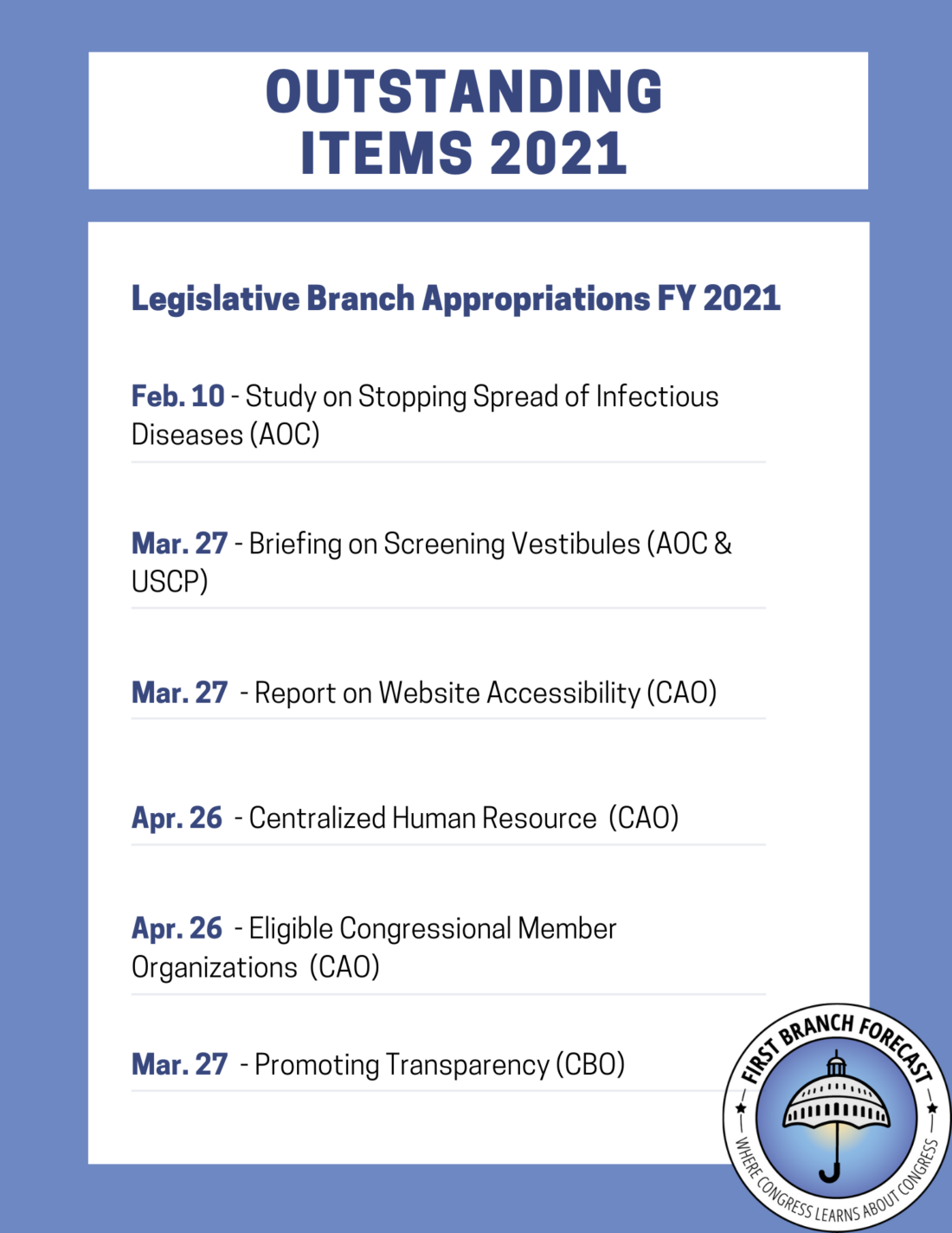On Thursday, July 28, 2022, Senate Appropriations Committee Chair Patrick Leahy published 12 appropriations bills and accompanying explanatory statements, including the FY 2023 Senate Legislative Branch Appropriations bill and explanatory statement. These measures will not go through the traditional hearing and mark-up process. The bill and explanatory statement are packed with good government reforms and significant investments in Congressional operations.
We and our civil society colleagues recommended dozens of items to include — see our FY 2023 Appropriations requests, FY 2023 appropriations testimony, and report on updating House Rules for the 117th Congress — a number of which made it into the bill and report. We are deeply appreciative of Chair Jack Reed, Ranking Member Mike Braun, and members of the committee for their consideration of our requests.
Read more:
- Resources on prior Legislative Branch Appropriations bills;
- Summaries of the FY 2023 House version, including
- Changes in the appropriations line items
There are a few provisions in the Senate Legislative Branch Subcommittee bill and explanatory statement to note as the Senate is now moving through its appropriations process. They include:
- Strong investments in staff pay and benefits, including an increase in the SOPOEA to allow Senators to pay their full-time staff a $45,000 salary minimum, as well as the creation of a bipartisan diversity and inclusion working group.
- More resources for improving legislative branch access to Executive branch information, including the creation of a new joint CBO, LOC, and GAO working group to examine the issues of legislative data access between the Legislative branch and Executive branch agencies.
- Heightened funding for congressional operations, including creating a centralized repository for Senate documents where legislative information would be available prior to or contemporaneously with decisions; enhancing tracking of legislation on Congress.gov; improved floor scheduling information on Congress.gov; as well as improving reporting of lobbyists’ activities.
